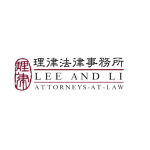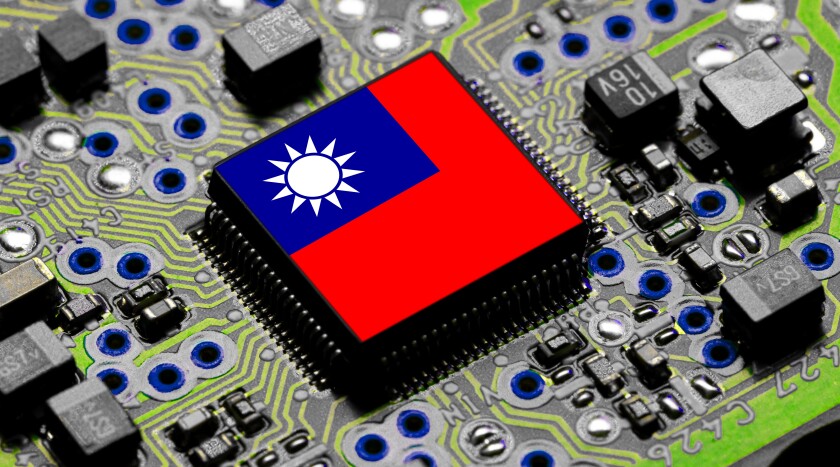Market overview
In response to regional economic growth and supply chain reshaping, major technology companies in Taiwan are strategically positioning themselves for industry upgrading and transformation through large-scale cross-border mergers and outbound acquisitions.
WPG Holdings, a prominent integrated circuit (IC) channel giant, announced its acquisition of Canadian IC distributor Future Electronics for $3.8 billion in 2023. This major transaction will not only enhance WPG's product line but also maximise the group's integration and synergy.
Another notable acquisition in 2023 was by AU Optronics (AUO), a leading display panel manufacturer, which announced its acquisition of 100% of the equity of German automotive electronics company Behr-Hella Thermocontrol for €600 million. This move allows AUO to expand its presence in the automotive electronics market and strengthen its vertical market applications.
Overall, these offshore acquisitions highlight the strategic moves made by major technology companies in Taiwan to better position themselves for industry transformation and capitalise on the growing opportunities in various markets.
Similar to past years, green energy continues to thrive. Investors' interest in solar energy and offshore wind farm projects also fuelled the M&A market. Aside from the energy sector, there has been a significant trend of consolidations within the retail, biotechnology, and medical sectors.
Both private and public M&A transactions drive the M&A market in Taiwan. Aside from a few notable public M&A transactions in 2022 and 2023, there were quite a few private M&A transactions. For example, there have been several acquisitions in the energy sector and retail chains, and smaller M&A deals for emerging technology companies. Nonetheless, there may have been fewer investments by People’s Republic of China (PRC)/PRC-invested companies in Taiwanese companies through M&A due to the change of political climate and cross-strait tension.
Notable deals
In 2022, Far EasTone, one of Taiwan's biggest telecom companies, entered into a merger agreement with a rival player, Asia Pacific Telecom, whereby Far EasTone will be the surviving listed company and Asia Pacific will delist and merge into Far EasTone. Both shareholders’ meetings of Far EasTone and Asia Pacific Telecom approved the merger in 2022 and the transaction was pending merger clearance. However, a minority shareholder of Asia Pacific Telecom filed a claim in court, asserting that the resolutions adopted in the shareholders’ meeting of the company should be revoked due to a procedural flaw.
Despite the Fair Trade Commission (FTC) granting conditional clearance for the merger filing, a court ruling in 2023 deemed that the resolutions adopted in the shareholders’ meeting of Asia Pacific Telecom must be revoked. The ruling of the court was made on the grounds that:
Certain directors with conflicts of interest did not abstain from voting;
Certain directors with conflicts of interest did not make a disclosure to the board and the shareholders’ meeting, nor did they explain their reasons for supporting or opposing the proposal; and
There were procedural and substantive flaws in the fairness opinion issued by an independent expert.
Asia Pacific Telecom was compelled to reconvene a shareholders’ meeting to rectify the procedural flaws and eventually adopted the new resolutions pertaining to the approval of the merger. This contentious case serves as a stark reminder that even technical procedural flaws in the resolution can have adverse consequences on the outcome of a public deal.
Economic recovery
M&A activity experienced a noticeable slowdown in the first half of 2023, in contrast to the same period in 2022. However, a resurgence was witnessed in the latter half of the year following the announcement of several high-profile multinational M&A deals.
The technology industry is undergoing a significant transformation and upgrade, primarily through cross-border M&A, with the aim of establishing a comprehensive and efficient supply chain. Furthermore, there is a trend towards the integration of the biotechnology and medical sectors. It is anticipated that strategic collaborations and investment integrations between related companies will accelerate in 2024.
In the renewable energy sector, in view of the Taiwanese government's policy of promoting green energy, it is to be expected that there will be significant growth in M&A transactions pertaining to investments in offshore wind, solar energy projects, and other renewable energy companies.
There have been several driving forces in the structuring of M&A deals in Taiwan. For example, given that the amended M&A Act in 2016 allows for more flexibility in terms of the form of the consideration that an acquirer may offer to the shareholders of a target company, it becomes easier for an acquirer to achieve a 100% equity interest acquisition. This was evidenced by the increasingly popular cash-out share exchange structure in 2018 and 2019. Through 2020 to 2023, the slowing down of major transactions appears to reflect public calls for more stringent disclosure and voting requirements for cash-out deals and delistings.
Meanwhile, Taiwan’s government promulgated amendments to laws and regulations governing PRC investors' investment in Taiwan to prevent the circumvention of investment control. For example, according to the amendments:
Stricter criteria were adopted for identifying PRC investment made through a third-area intermediary; and
PRC investors wishing to control a Taiwanese company (other than those listed on the TWSE or the Taipei Exchange, or traded over the Emerging Market of the Taipei Exchange) via a contractual arrangement are also required to apply for regulatory approval.
Given the above, transactions must be carefully structured to meet the requirements applicable to PRC investors when making an investment in Taiwan.
M&A trends
During the past decade, big-ticket M&A in Taiwan have been mostly driven by strategic investors. Financial investors have primarily participated in M&A as co-investors or as acquirers of minority stakes in companies.
Since 2018, however, there has been a trend of financial investors returning to the market after being silent for almost a decade. A series of deals – including KKR’s take-private acquisition of LCY, Morgan Stanley’s take-private acquisition of Microlife, Blackrock’s acquisition of a solar portfolio, and Permira's investment into aquaculture feeds company Grobest – were led by private equity funds. There were still several transactions initiated by private equity funds through 2020 to 2022, such as the take-private acquisition of On-Bright by Magicapital, Pavilion Capital, and Axiom Capital in 2020; the take-private acquisition of Ginko by Baring Private Equity Asia in 2021 and 2022; and the acquisition of TE Connectivity's Hirschmann Car Communication segment by Phi Capital in 2023.
In response to the Taiwanese government's ambitious effort to promote renewable energy, M&A transactions in the energy sector continued to thrive in 2023, largely driven by foreign and local financial investors. The notable examples are several sell-downs of offshore wind farm developers, as well as a number of large-to-mid-size investments in the solar power plant industry. Furthermore, there have also been quite a few global asset management firms continuing their involvement in building and acquiring Taiwan's internet data centres.
Additionally, Gogoro and Gorilla Technology Group went public on Nasdaq through mergers with SPACs in 2021. In 2022, Perfect Corp. went public on the New York Stock Exchange through a merger with a SPAC. In 2023, TNL Mediagene and Taiwan Color Optics announced the execution of business combination agreements for going public on Nasdaq through mergers with SPACs. There could be a trend for Taiwanese-based companies to seek the opportunity for IPOs in the US market through de-SPACs, and more de-SPAC transactions are expected in 2024.
Legislation and policy changes
The main statutes governing M&A activity in Taiwan are:
The Business Mergers and Acquisitions Act (the M&A Act);
The Securities and Exchange Act includes tender offer rules that regulate tender offers for acquiring shares of public companies. Other statutes that may also be relevant in M&A activity include the Labor Standards Act, investment regulations on foreign investors and investors from the PRC, and tax laws and regulations.
The Securities and Futures Bureau of the Financial Supervisory Commission (FSC), the government agency responsible for public companies, is the main regulatory body in charge of public M&A transactions. The other relevant regulatory bodies include the FTC, the authority in charge of merger clearance, and the Department of Investment Review, the authority in charge of reviewing foreign and PRC investments. If the target engages in businesses that require a special licence, the competent authority for the special licence may also review the transaction.
The Company Act
After the overhaul of the Company Act in November 2018, shareholders holding over 50% of shares may now call a shareholders' meeting without needing the board to do so. This enables insurgent shareholders to replace the incumbent board as soon as they acquire a majority stake. This is worth noting for hostile takeovers.
The M&A Act
The latest amendments to the M&A Act came into effect in December 2022. The amendments aim to improve the flexibility of M&A, while also protecting shareholders' rights. The key amendments include the following:
Enhancing disclosure before the shareholders' meeting – the directors should explain their personal interests and reasons for supporting or opposing the transaction at the board meeting and the shareholders' meeting. The amendment further requires that such information be stated on the shareholders' meeting notice so that shareholders are informed beforehand.
Relaxing the restrictions on appraisal rights – previously, dissenting shareholders had to abstain from voting to exercise the appraisal right. The amendment now permits dissenting shareholders to vote against the proposal (instead of abstaining) and still exercise the appraisal right.
Expanding the scope of asymmetric M&A – asymmetric M&A, where a company acquires a significantly smaller target, can now be approved by a special board resolution if the transaction meets either of these conditions:
The new shares issued by the merging company are less than 20% of its voting shares; or
The consideration paid by the acquirer does not exceed 20% of the book value of the target.
The Securities and Exchange Act
The Securities and Exchange Act was amended in 2023, with a few noteworthy changes:
Restricting independent directors' authority – the amendment requires that the audit committee determines certain of its supervisory functions (instead of exercised by an independent director alone), including:
Bringing a lawsuit against a director;
Calling a shareholders' meeting; and
Representing the company when a director engages in self-dealing with the company.
Broadening the scope of disclosure requirements of major shareholders – after the amendment, any shareholder who, individually or jointly with others, acquires more than 5% (previously 10%) of a company's shares should fulfil the reporting and disclosure obligations under the securities laws to create more transparency from a regulatory perspective.
The Fair Trade Act
The FTC proposed an amendment to the Fair Trade Act in 2023, which removes the market share threshold for merger filing. Currently, the FTC uses a two-pronged test to determine whether a transaction is subject to merger filing – a merger filing with the FTC is necessary if the parties to the transaction meet the turnover threshold or the market share threshold.
However, determining whether the market threshold is met can be challenging for an enterprise due to the complexity of market share calculation and market definition. Thus, to provide clear guidance on filing obligations, the FTC has proposed removing the market share filing threshold and relying only on the turnover filing threshold.
Nonetheless, the FTC may still require special turnover thresholds for certain industries. As the removal of the market share threshold will make it easier for parties involved in cross-border M&A deals to determine whether Taiwan merger filing is required, it is important to keep an eye on any future actions taken by the FTC in this regard.
Practice insight/market norms
Information disclosure and insider trading are important and sensitive aspects for public companies in Taiwan. However, local management tends to overlook their significance and fail to make the proper disclosures. Insider trading violations have frequently occurred in large public M&A transactions, leading to quite a few criminal investigations.
There have been many attempts by management to manipulate the stock prices of public companies or to intentionally buy/sell the shares of the target before the material non-public information is legally and properly disclosed to the market, for their own improper gains. There have been reports of insider trading issues in several notable deals in recent years.
This type of misconduct harms the buyer’s trust and the seller’s credibility. For example, if the price increases unreasonably before the information is disclosed, the buyer might ask for a cooling-off period or even choose to cancel the transaction.
Considering the concerns described above, public companies should pay more attention to information disclosure when they plan M&A transactions. This includes understanding what information should be disclosed and the proper timing for disclosing certain pieces of information to the market. Most importantly, public company insiders must refrain from trading any shares in the public company before proper information disclosure. Professional advice should be sought regarding this issue.
In Taiwan, M&A transactions are often subject to regulatory approvals, such as foreign investment approvals or PRC investment approvals. Industries that require a special licence/permit – such as banking, securities firms, and insurance companies – need to obtain prior approval from the competent authority, such as the FSC. Meanwhile, any M&A transaction that triggers the pre-closing merger filing threshold must obtain merger clearance before closing.
Given all these requirements, obtaining the proper regulatory approvals is critical to the completion of an M&A transaction in Taiwan. As such, investors intending to conduct an M&A transaction in Taiwan should seek professional advice in advance to better understand the regulatory requirements and application process.
It is common practice in Taiwan to conduct legal due diligence investigations for M&A deals by accessing documents and files in virtual data rooms, eliminating the need for the potential acquirers to carry out onsite due diligence in the target’s physical location.
As a countermeasure against the COVID outbreak, authorities allowed public companies to hold video-aided shareholders’ meetings, and the use of videoconferencing in corporate meetings has become prevalent in private companies. This has facilitated the digitalisation of corporate governance in the post-COVID era.
Moreover, there have been discussions in Taiwan about how emerging technologies, such as AI, could support legal practice, including M&A transactions. However, the use of these new technologies is still not common in M&A transactions in Taiwan.
Public M&A
Given that under the Taiwan Company Act, material decisions require the approval of shareholders holding two thirds of the voting shares present at a shareholders’ meeting, in order to gain absolute control of a public company, an acquirer should aim to acquire, or control, at least 67% of the shares.
In practice, given that not all shareholders attend shareholders’ meetings, to control the management or operation of a listed company, it is sometimes enough for one investor to control 30% to 40% of the voting rights in a listed company. In sum, this would largely depend on the dispersion of the shareholding structure of the listed company.
The local practice is that:
The conditions of a tender offer usually include the minimum and maximum number of shares that the shareholders of the target company agree to tender during the tender offer period;
The tender offeror obtains the required government approvals, if any (such as merger clearance and foreign investment approval); and
There is no occurrence of any material adverse event (subject to the approval of the FSC).
Among others, with respect to the condition of obtaining the required government approvals, given that the securities regulator has changed its position and no longer requires the tender offeror to launch a tender offer immediately after the deal is announced, the tender offeror may elect to file the applications for government approvals with governmental authorities in relevant jurisdictions much earlier than the time the tender offer is launched so as to obtain the required government approvals before the expiry of the tender offer period.
A no-shop clause restricting the selling party from pursuing during the exclusivity period a transaction similar to the proposed transaction is not uncommon. In some deals in recent years, break fee arrangements have been structured based on the occurrence of certain trigger events. Buyers may also negotiate with major shareholders of the target companies and enter into tender agreements or voting agreements to increase the certainty of the deal.
Private M&A
Large private M&A transactions often adopt a completion accounts mechanism under which the purchase price is adjusted in accordance with the post-closing audit of the financial status of the target company, as at the closing date.
For transactions with a smaller value, it is more common for the parties to adopt the locked-box mechanism, which has become more and more popular in recent years.
Earn-out mechanisms and escrow arrangements are commonly seen in private M&A transactions.
Recently, warranty and indemnity insurance has been increasingly adopted in local deals by sellers and buyers, but the prevalence has fallen post-COVID.
The customary closing conditions attached to a private takeover offer usually include that:
The seller's representations and warranties remain true and correct;
The required government approval (if any) has been obtained;
Required third-party consent (if any) has been obtained;
No material adverse event has occurred;
No action or government order is seeking to deter or enjoin the proposed M&A transaction; and
Other commercial arrangements required by the parties have been completed or achieved (this would usually be structured based on the due diligence findings).
If any party in a private M&A transaction belongs to a foreign corporate group, that party would normally require that the transaction documents be governed by the law of the foreign country where the headquarters of the foreign corporate group is located. Any dispute arising from the transaction documents will then be resolved via the court of a foreign jurisdiction or an arbitration proceeding conducted outside Taiwan. Local parties would normally accept such arrangements.
The IPO market in Taiwan is generally perceived as serving the purpose of fundraising rather than exiting, due to lock-up requirements, minimum shareholding requirements, legal requirements, and limitations on selling shares that are applied to major shareholders, directors, and supervisors. For the major shareholders of a public company who wish to sell their shares to a potential buyer, a mandatory tender offer may be triggered if more than 20% of the shareholding will be transferred within 50 days. Consequently, a major shareholder’s exit in the open market may be treated as a trade sale.
On the other hand, trade sales or sales to financial sponsors have always been a major exit route. Other than highly regulated industries (such as media or cable TV) or acquisitions involving PRC funding, there should be no substantial hurdle for an exit, albeit that the regulatory approval process may sometimes take a long time. As for highly regulated industries and investments involving PRC funding, the Taiwanese government has been criticised for a prolonged regulatory approval process and lack of transparency in its decision-making process.
Looking ahead
Considering the government’s conservative attitude towards PRC investment (specifically, the newly amended investment regulatory scheme for PRC investors, as indicated above), similar to the trend in 2023, not only can major transactions involving PRC funding be expected to be less likely to take place in Taiwan in 2024, but the amount of investment and number of transactions involving PRC funding might also be less.
Given that investments made by PRC investors through the ‘control via contract’ structure (e.g., a variable interest entity structure) also require regulatory approval under the amended scheme, it is anticipated that there will be more enquiries regarding the alternative structures to achieve cross-strait collaboration.
On the other hand, given that the Taiwanese government is continuing to promote renewable energy and that some developers in the renewable energy sector are divesting their project investments, the authors envisage that M&A transactions in the energy sector will continue to thrive in 2024. More transactions are also expected in the AI, biotech, and healthcare industries.





